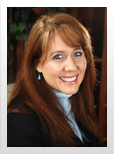|
To receive daily emails from Breaking Christian News to your inbox CLICK HERE
Florida's Education Choice Opportunity"School choice empowers parents, creates competition, fosters innovation, and raises the level of excellence in all of our schools. HB 1 will give every parent the freedom to customize their children's education with a learning program that fits their unique needs." -Florida House Speaker Paul Renner
"Florida's schoolchildren are thriving because we invest in our students, and we empower parents to decide what learning environment is best for their kids," Florida Gov. Ron DeSantis, a Republican, said at an event launching Heritage's report card. (The Daily Signal is the multimedia news organization of The Heritage Foundation.) Florida has provided other states with a model of education policy worth emulating. However, as DeSantis conceded during his remarks, Florida didn't take the top spot in every category. The Sunshine State ranked third for education choice behind Arizona and Indiana, because of their more robust policies. "We're going to be working hard to make sure we do even better going forward," DeSantis declared. Since then, three additional states—Iowa, Utah, and Arkansas—have overtaken Florida by enacting education choice policies for which all K-12 students will be eligible. Several other states are considering such universal policies. If Florida lawmakers want to take the school choice crown, they likewise will have to expand education choice to all students. A proposal now before the Florida Legislature would do just that. House Bill 1, a priority bill for Florida House Speaker Paul Renner, a Republican, would expand eligibility for the state's groundbreaking education savings account policy to all K-12 students. Currently, only students with special needs are eligible. With an education savings account, or ESA, families have the freedom and flexibility to customize their child's education. Families may use ESA funds to pay for private school tuition, tutoring, textbooks, homeschool curriculum, online learning, special needs therapy, and more. Florida was the second state, after Arizona, to enact an ESA policy. "School choice empowers parents, creates competition, fosters innovation, and raises the level of excellence in all of our schools," Renner said. "HB 1 will give every parent the freedom to customize their children's education with a learning program that fits their unique needs." Expanding eligibility for Florida's education savings accounts to all K-12 students would be a major step toward ensuring that every child gets access to the education he or she deserves. However, the legislation has some areas that need improvement. As written, HB 1 would allow families to use ESAs to pay for online learning. However, the bill—perhaps inadvertently—references an existing statute that requires that an "approved provider" of virtual education must be "nonsectarian in its programs, admission policies, employment practices, and operations." In other words, whereas ESA families could choose religious or secular private schools, tutors, and other education providers, they would be prohibited from choosing religiously affiliated providers of virtual learning. Not only would this prohibition unnecessarily restrict parental choice, but it almost certainly runs afoul of the First Amendment's free exercise clause, as made clear in recent Supreme Court decisions in Espinoza v. Montana Department of Revenue and Carson v. Makin. In Espinoza, the high court ruled that a state "need not subsidize private education" but that once it "decides to do so, it cannot disqualify some private schools solely because they are religious." Likewise, a state need not subsidize families choosing virtual learning, but once it decides to do so, it cannot disqualify some virtual learning providers solely because they are religious. Another issue concerns the definition of "eligible private school." Those who travel down the rabbit hole of statutory references will find that eligible private schools must provide full-time, in-person instruction. However, this would limit the ability of parents to choose "blended learning" programs that combine or alternate between in-person and virtual instruction, as well as "hybrid homeschooling" that alternates between in-person instruction and home education. Given the unnecessarily long school shutdowns during the COVID-19 pandemic, and the uneven quality of "Zoom school," state policymakers understandably are keen to ensure that families have access to in-person instruction. However, policymakers should not unnecessarily restrict families' learning options. For a variety of legitimate reasons, some families prefer virtual options or the combination of virtual and in-person instruction. It's also important to remember that emergency distance learning isn't the same thing as intentional virtual learning programs. A 2020 survey found that 86% of parents of children enrolled in virtual schools reported that their children "learned a lot." Meanwhile, only 13% of parents of children enrolled in brick-and-mortar schools that were using remote learning reported that their children had "learned a lot." The survey also found that parents of virtual-school students were "significantly more likely to report that their child engaged in activities associated with active learning, and they agreed that virtual schools outperformed brick and mortar schools when it comes to clear communication, classroom management, and sound instructional practices." Even before COVID-19, some private schools began to incorporate virtual learning into their programming in order to expand students' access to subjects they otherwise could not offer, to improve quality, and to reduce costs. For example, as I previously detailed in an essay for Mosaic, blended learning is increasingly common among parochial schools serving the Orthodox Jewish community, which is making an exodus to Florida from states such as New York due, in large part, to Florida's school choice policies. Likewise, virtual learning is a particular boon to rural schools that might struggle to find local teachers for certain advanced or uncommon coursework, like Advanced Placement Calculus or Mandarin Chinese. As written, HB 1 would limit the ability of these schools to provide virtual instruction. Fortunately, policymakers could fix these issues easily by inserting language into the bill clarifying that, notwithstanding any other provision in Florida statute, families using education savings accounts may choose virtual learning providers that offer sectarian or nonsectarian instruction. The language also should specify that virtual learning counts toward students' regular attendance, whether or not they also are enrolled in a brick-and-mortar school. Florida has an opportunity to reclaim its mantle as the leading state for education freedom and choice. With just a few small but important tweaks, the Sunshine State could adopt a policy on universal education choice that will be a shining example for other states to follow. Subscribe for free to Breaking Christian News here Jason Bedrick is a research fellow with The Heritage Foundation's Center for Education Policy.
To receive daily emails from Breaking Christian News to your inbox CLICK HERE
Other Recent Articles from Breaking Christian News A Growing Global Movement of Parents Is Keeping Their Kids Free from Smartphones Democrat Downplays That Bill Would Cost Trump His Secret Service Detail Teacher's Union Accused of Laundering $1.5 Million to Bankroll Dem Governor Josh Shapiro's Campaign Dan Bongino: 9 Reasons to Vote for Kamala Harris New Comms Director for Kamala Harris Campaign Wants to Pack the Supreme Court and Defund the Police Pro-Life Protester Sentenced to More Than 3 Years Behind Bars for Blocking Abortion Clinic These Important Election Integrity Initiatives Might Be on Your 2024 Ballot Harris Campaign Admits to Misleading Voters on Trump, Project 2025 Pro-Harris Media Scrambles to Erase 'Border Czar' from Her Resume as GOP Highlights Her Record Netanyahu Hails Israeli-US Bond, Reminds Protesters Israel the 'Land of the Bible' for 4,000 Years Pray: Elderly Trump Supporter Run Over in Front Yard Elon Musk Says AI Must Be 'Pro-Human,' Is Alarmed by Technological Developments The Man and the Motive: Behind Musk's War on the 'Woke Mind Virus,' and Why He Fights for Children Alberta Premier Danielle Smith Promises Bill Protecting Rights to Refuse Vaccines Is Coming |
All articles on this site and emails from BCN are copyrighted property of Breaking Christian News. Permission is given to link to, or share a BCN story if proper attribution is given to both the original writer and summarizer of the story. Breaking Christian News 2005-2019. All Rights Reserved.
Breaking Christian News is a division of Elijah List Publications, Inc. All Rights Reserved
Disclaimer: Articles and links, as well as the source articles linked to; do not necessarily reflect the opinion of Breaking Christian News.
| Home | Store | Subscribe | Facebook | Article Archive |



 [
[








